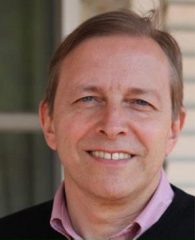

Speaker Prof. Dr. Erich Wühr
For many years now the lectures from Professor Erich Wühr enriche the Matrix Workshops. In this years topic he adresses “Evidence and Scientific Evidence in Physiotherapy”. We all look forward to his lecture.

Prof. Dr. Erich Wühr
Professor med. dent. Erich Wühr studied dentistry (state examination) at the University of Erlangen / Nuremberg, and has additional training in several related areas. Among other things, he has an MSc in orthodontics (Danube University Krems) and an osteopathic training (BVO). At the Deggendorf University of Applied Sciences, he was appointed to the Faculty of Applied Health Sciences for the subject area of Health Promotion and Prevention. He teaches dentists, orthodontists and physiotherapists in Craniofacial Orthopedics and runs a dental practice in Bad Kötzting. He is the author and co-author of several books (“Craniofacial Orthopedics”, “Systemic Medicine”, “Chinese Syndrome Diagnostics and Therapy”, “Chinese Medicine”, “Oral Medicine Manual”, “Charisma in Patient Management”) and is also authoritatively involved in the development of the Bad Kötztinger IGM® lifestyle program SINOCUR®, which is currently being implemented and researched in a model project with the statutory health insurance AOK Bayern.
Professor Wühr, what is your connection to Matrix Rhythm Therapy?
In addition to my teaching duties at the university and the development of the IGM® lifestyle program, I still run my dental practice in Bad Kötzting. This practice specializes in the interdisciplinary diagnosis and treatment of patients with muscle and joint pain within and outside of the masticatory system. For these patients, I have been using Matrix Rhythm Therapy since 2005. It is my most effective manual treatment for myofascial micro-contractures. In addition, Matrix Rhythm Therapy is part of the curriculum for craniofacial orthopedics. Dr. Randoll is also a lecturer at the Deggendorf University of Technology during my extra-occupational bachelor’s degree in physiotherapy.
Especially, the scientific evidence is met with great interest among our users of physiotherapy. Can you tell us what the workshop participants can expect?
Evidence-based medicine is currently the “gold standard” in clinical research. I would like to present it in my lecture with reference to physiotherapy and critically question it from the perspective of modern epistemology and science. Above all, I would like to show how our colleagues can use scientific methodology to increase their practical success
You have also written a book on “Systemic Medicine.” Can you briefly explain the essentials of it here?
The systemic understanding of nature has become increasingly prevalent in the natural sciences over the past 70 years and has now become integrated into medicine as well. Systemic medicine understands humans as a biological system that is networked with ancillary and superordinate social and natural systems and exchanges them with matter, energy and information. These complex interactions can be conducive or stressful and largely determine the shape and function of the human system. Matrix-Rhythm Therapy perfectly implements this systemic thinking, decision-making and action in theory and practice. Our scientific methodology must also pay more attention to the complexity of these relationships.
You were appointed to the subject area of Health Promotion and Prevention at the Deggendorf University of Applied Sciences. Who do you teach there, and what is the significance of the methodology there?
At the moment, I am teaching Physiotherapists in two study programs: the basic dual Bachelor degree course Physiotherapy and the part-time Bachelor degree program, Physiotherapy with a focus on manual medicine. I teach “Systemic Medicine” in the Bachelor program’s Applied Exercise Science. In all study programs, there are two comprehensive modules for scientific methodology as well as a Bachelor’s thesis. Students should learn how to base their day-to-day practice on science and how to continuously improve their knowledge of scientific quality management. That’s what I want to talk about in my talk at the Matrix Congress on Ischia.
What is Scientific Quality Management?
In Scientific Quality Management, the user regularly checks the quality of the structures, the processes and the results of their practical work and draws conclusions from this examination for the continuous improvement of the quality of their practice.
The structural quality is about equipment and the equipment of the practice, hygiene, education of employees and the like. In terms of process quality, the examination and treatment processes are precisely described and checked; the quality of the results is examined to improve the quality of life of the patients.
The prerequisite for a scientific quality management is the willingness of the user to learn for life and to constantly improve the structures, processes and results of the practice.
Contact details:
www.th-deg.de/de/gesundheitscampus-bad-koetzting
www.kraniofaziale-orthopaedie.de

